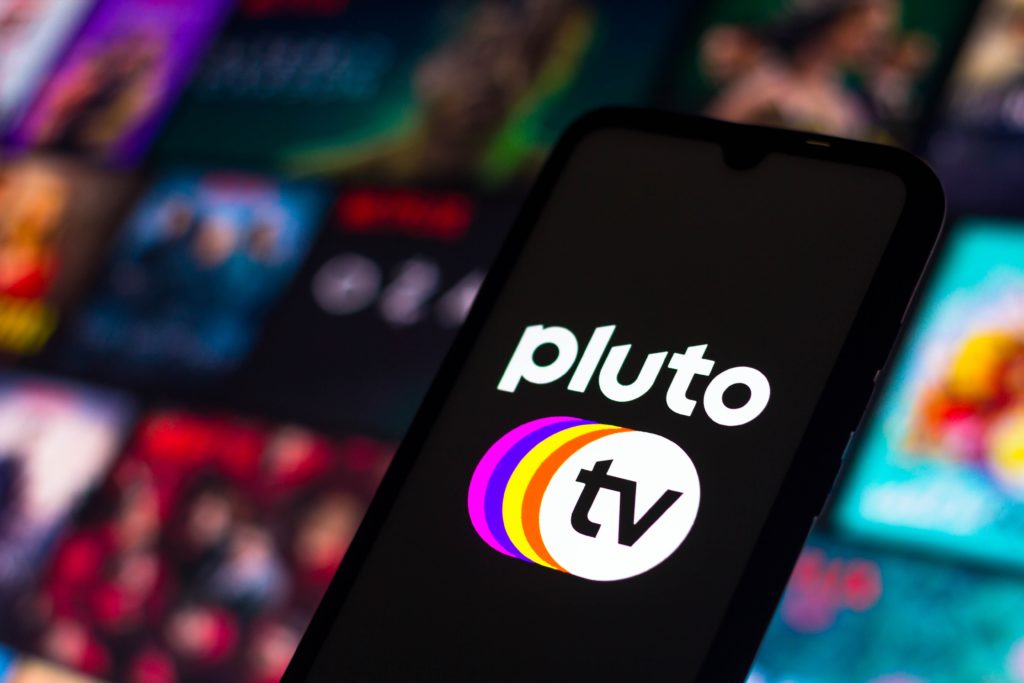As the dog days of summer bare their fangs, I rub my nipped heels and see I am running out of time to squeeze in a summer romance. It can’t be a woman at this rate; I won’t leave my air conditioned apartment to sweat out of anxiety on top of heat, and women don’t visit the apartments of men who still use dish soap as hand soap.
No, ironically enough it seems the only way for me to find a new love is to embrace the old, and I choose to return to Pluto TV.
Owned by media giant Paramount Streaming, Pluto TV is an ad-based streaming service, meaning it operates much like the traditional cable model. It provides over two hundred channels, but not the traditional ones like HBO and TNT and the ones near the bottom past God’s healing light. Rather, these are grouped by theme, so you’ll have a dozen films playing at one time, alongside a dozen classic television shows, with a dozen game shows and so on and so forth. The service is entirely free, paid for by commercials.
It is the perfect solution for someone adrift in the world of streaming, but unwilling to return to paying those sadists at Comcast. Streaming was like manna: a godsend at the time, but with the predictable consequences of carbs raining from the sky. Streaming has made us fat, weak, and distracted, like Augustus Gloop dropped into a Porto’s Bakery. Pluto TV is not merely a matter of saving money, it’s about saving your soul.
To understand why, it’s important to accept the paradox that commercials are both evil and spiritually edifying. Yes, they are the seductive tongue of mammon trying to convince us we are not complete without purchase, but consider how annoying it is to sit through them. The 14 hours a day I log on X (formally known as Twitter) have frayed my attention span to the point that even the five-second wait on YouTube sends my thumb dancing.
By comparison, commercials are something like a little Lent, small denials during your day to remind you that life’s delights are not owed to you. It is only through the mercy of a benevolent God that we have shows at all, and not just hours upon hours of 1-877-Kars4Kids.
Pluto TV also reminds us of the magic of scarcity, both in amount and time. Streaming promised and delivered on unlimited options, putting virtually any movie and television show at your literal fingertips. In retrospect that was its siren song as well as its Scylla. Human beings aren’t made for such a bounty, our brains short circuit at the possibilities.
When watching a movie now, one must allot at least 45 minutes of scrolling and second-guessing as part of the process. Even when winnowed down and watching you are then racked with the notorious FOMO (fear of missing out). Are you really ready to hitch your wagon to Paul Rudd playing a clone? To have a couple options is to have a couple options; to have a million options is to have none at all.
There’s a “Simpsons” quote from the romantically beleaguered Milhouse that always stuck with me: “When she sees you’ll do anything she says, she’s bound to respect you!” Poor Milhouse is too young to know that whatever is taken easily is taken for granted. Is it any wonder we treat our media the same way? We no longer watch movies, we instead “consume content,” as if no more than pigs at a trough.
Martin Scorsese has publicly stated how much he dislikes that terminology, and for this reason he is our most Catholic director: Scorsese was raised when films were actually on film and thus harder to screen. You might go 10 years between seeing “The Rules of the Game,” if you ever saw it again. Those transitory circumstances gave those films a certain sacredness, when you hear Scorsese wax on about films you feel that reverence yourself.
Pluto TV has limited inventory and an awkward rewinding mechanism that isn’t worth tinkering with. You must choose your option and operate on its pace, putting your phone down for once so you don’t miss a line you can’t repeat. The other night I watched the rightfully forgotten Michael Bay film “The Island.” But oddly enough, the pageantry of the commercials and respect I was forced to give as it played once (and only once) added to the experience. To my immense confusion, I found myself enjoying it. It was a useful reminder how the easiest way to create reverence is to treat something with reverence, even Scarlett Johanson as yet another clone.
Yes, I like Pluto TV because I am a nostalgic sop. With Pluto TV I feel a continuity with the past, a great chain of channel surfers throughout the generations. The streaming model is entirely new and slightly alien. TV should be relaxing — and being a pioneer is the least relaxing vocation.
I’m not trying to convince readers of the merits of a single ad-based streaming option (that would be merely a bonus), but rather the need to find and embrace the obstinacy in your own life. To be suspicious of all change is purely reactionary, but to be suspicious of none of it makes you an easy mark. Every person needs to take their symbolic stand, whether that’s crocheting mittens the old-fashioned way or rejecting the witchcraft that is sabermetrics.
The old adage tells us to make new friends but keep the old: well, television is my oldest friend, and we trust each other well enough to allow me to save TV from itself.

